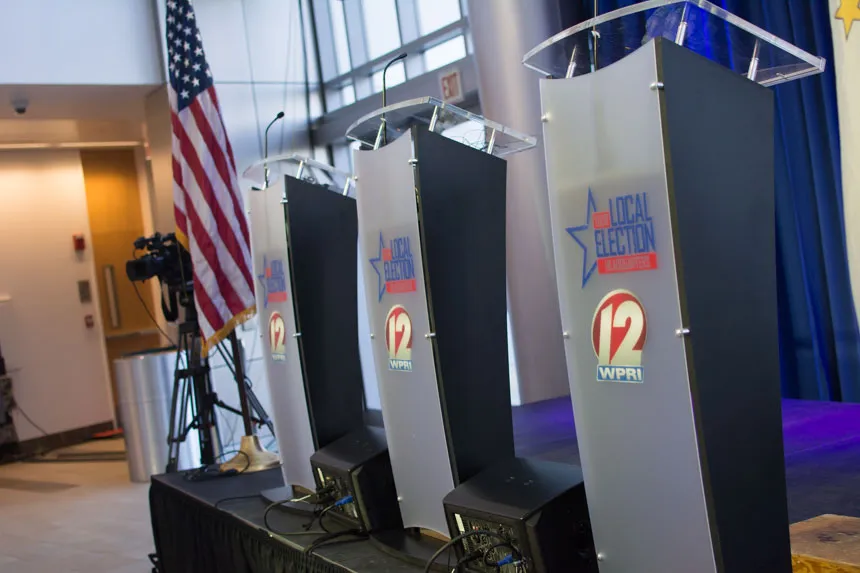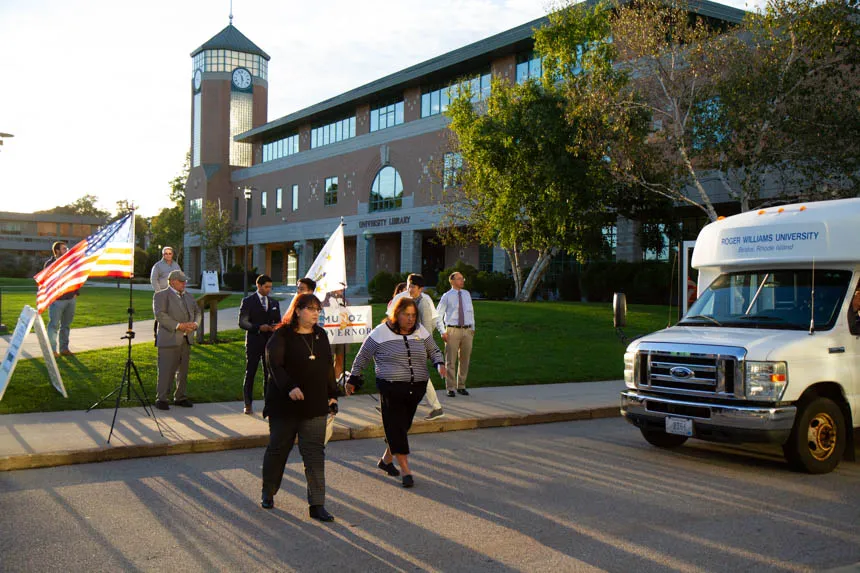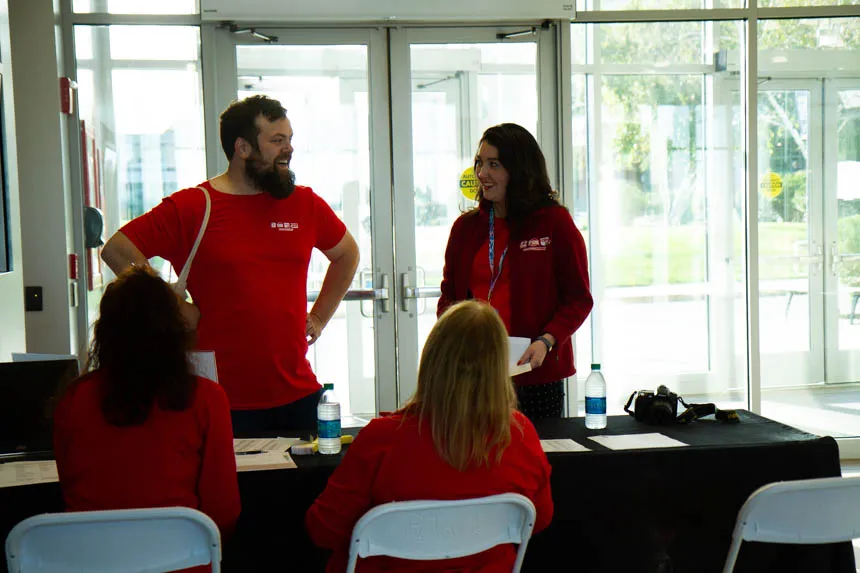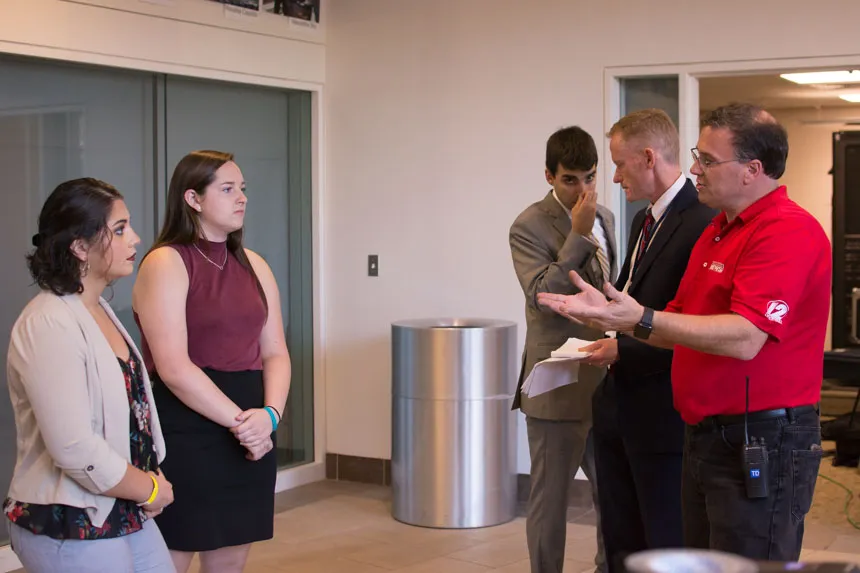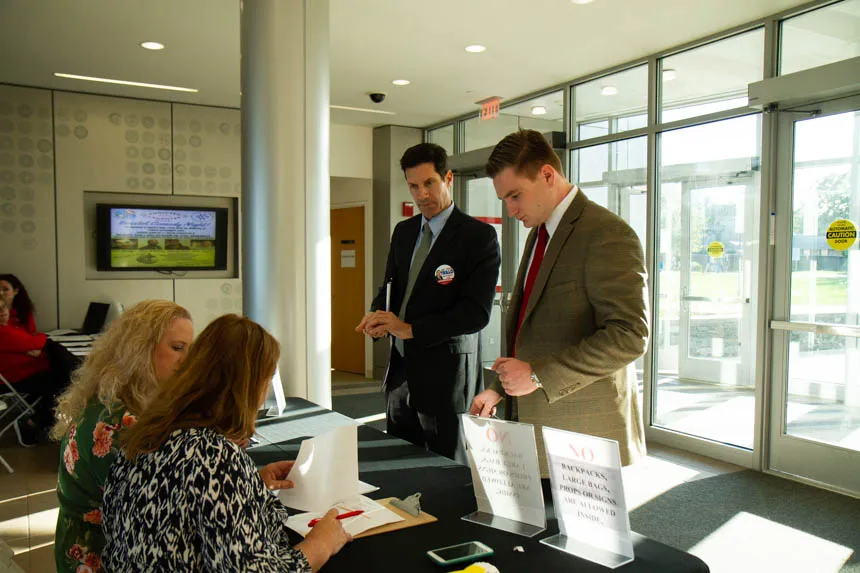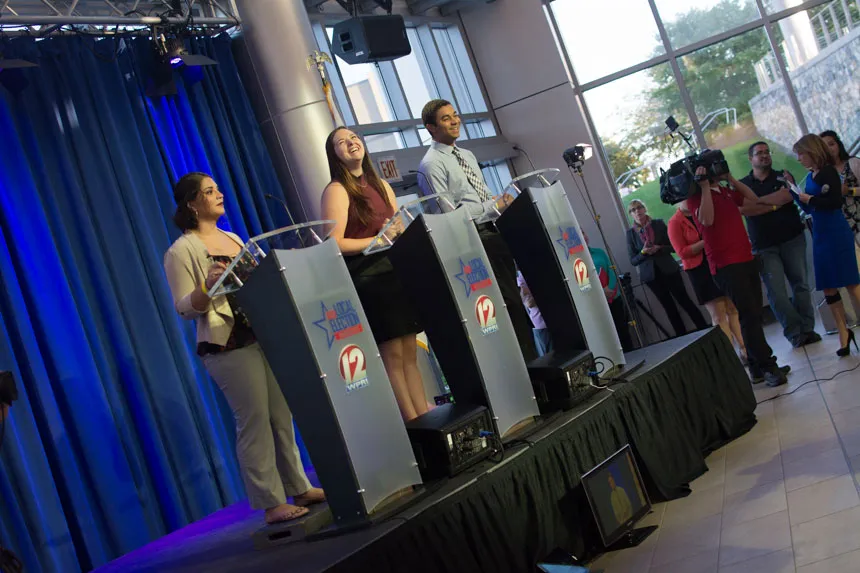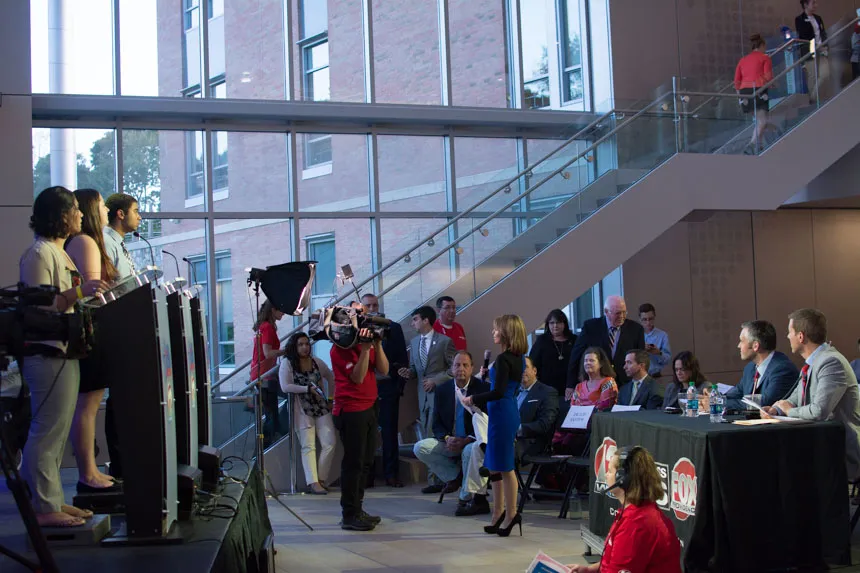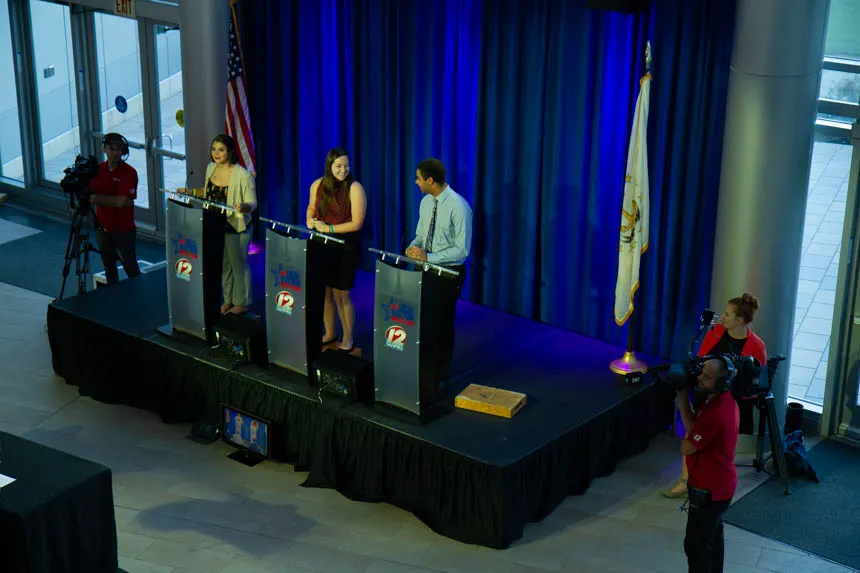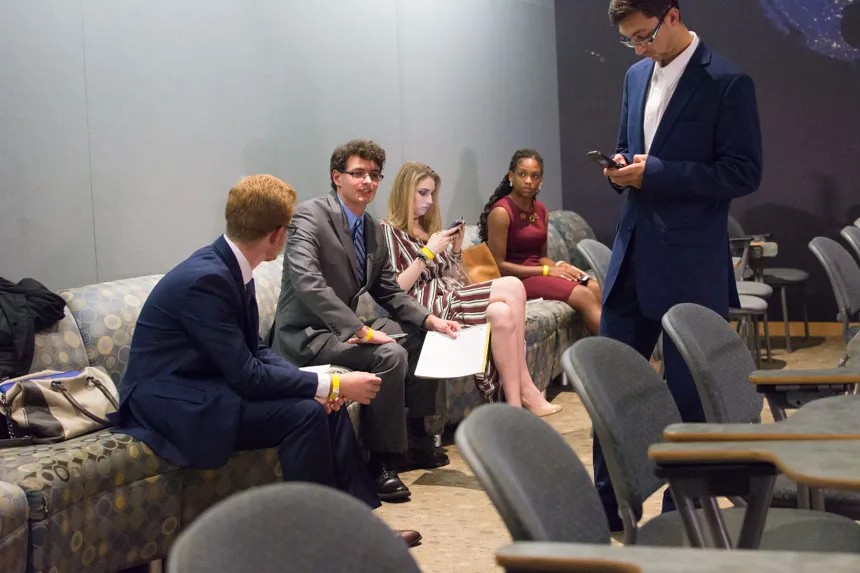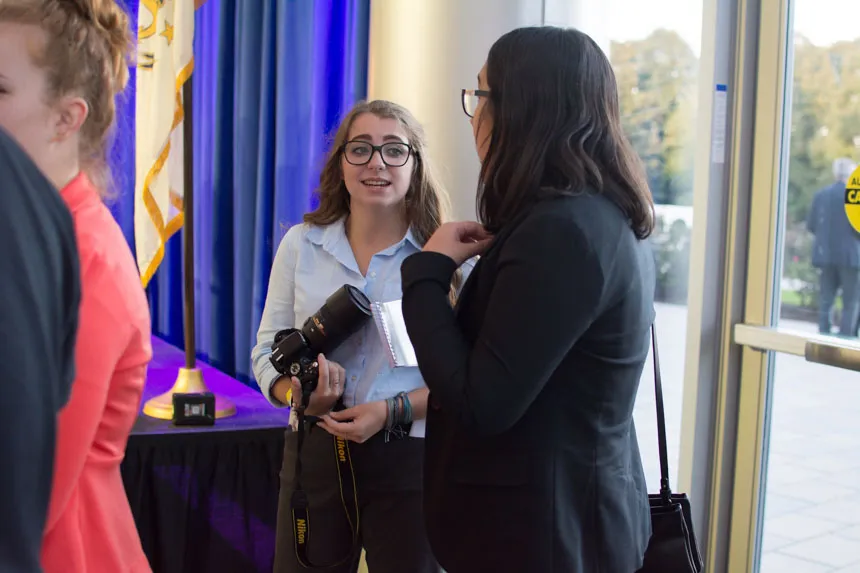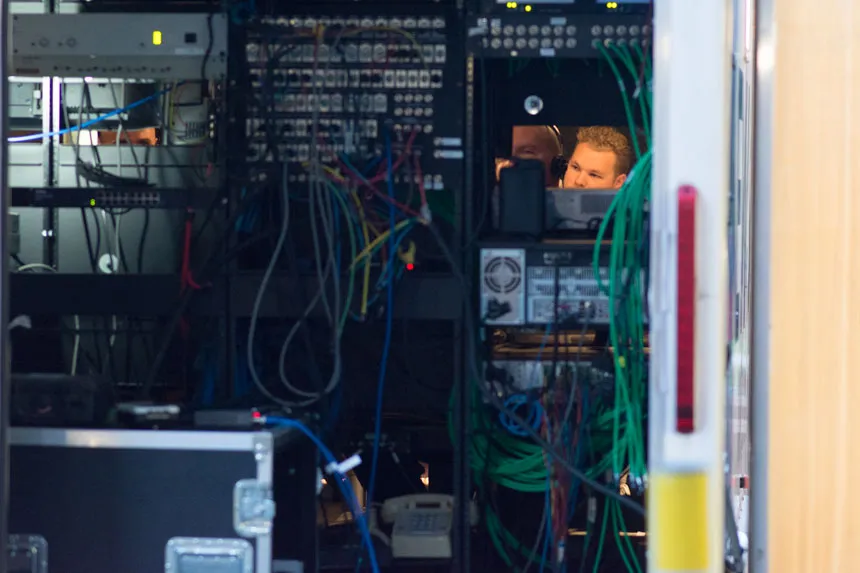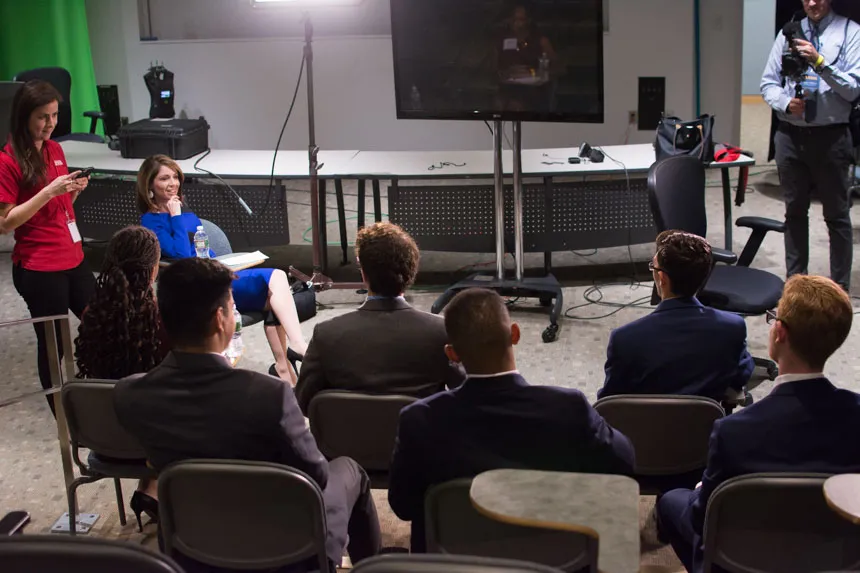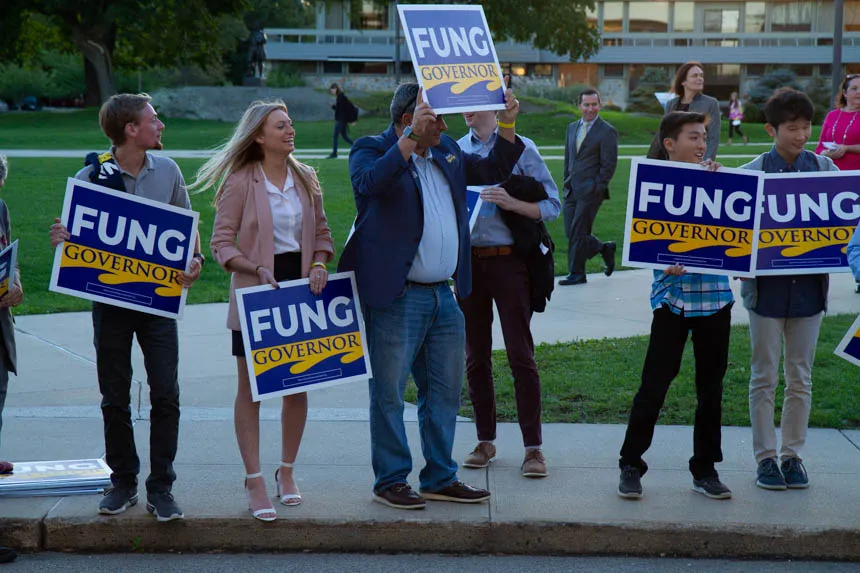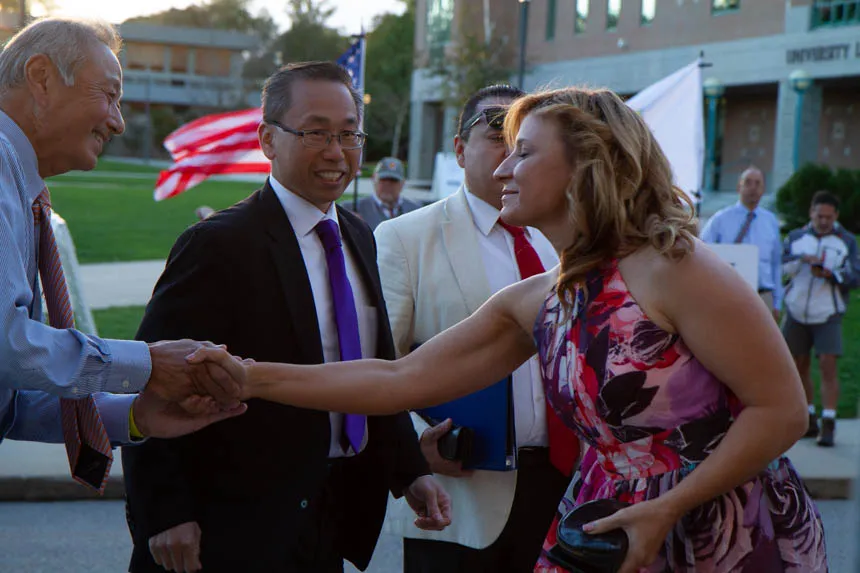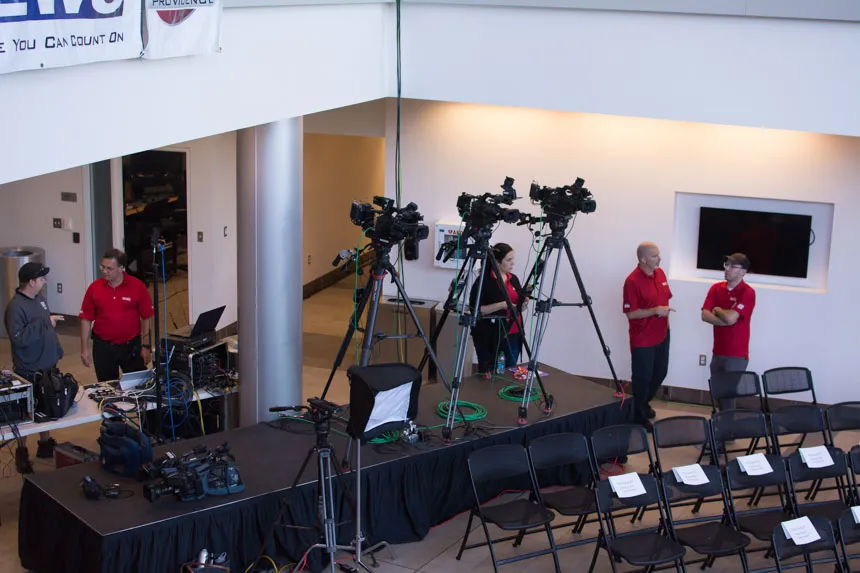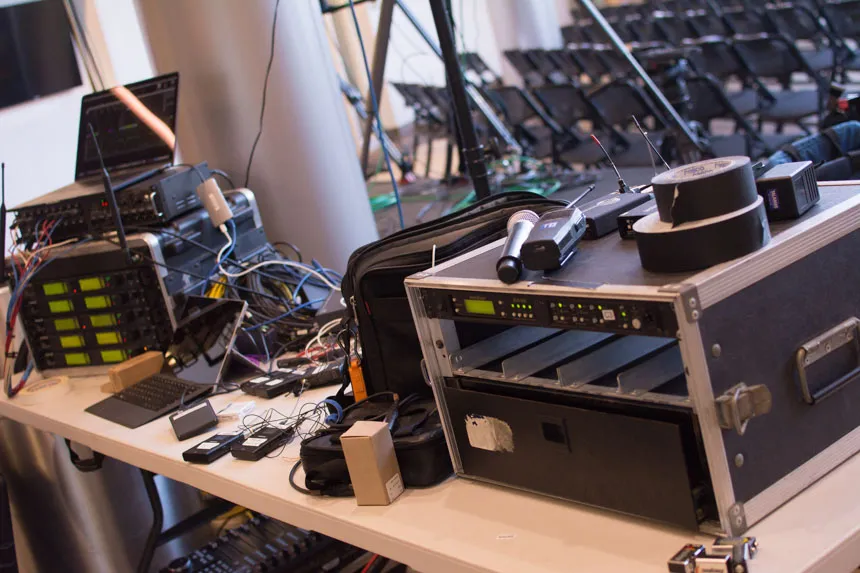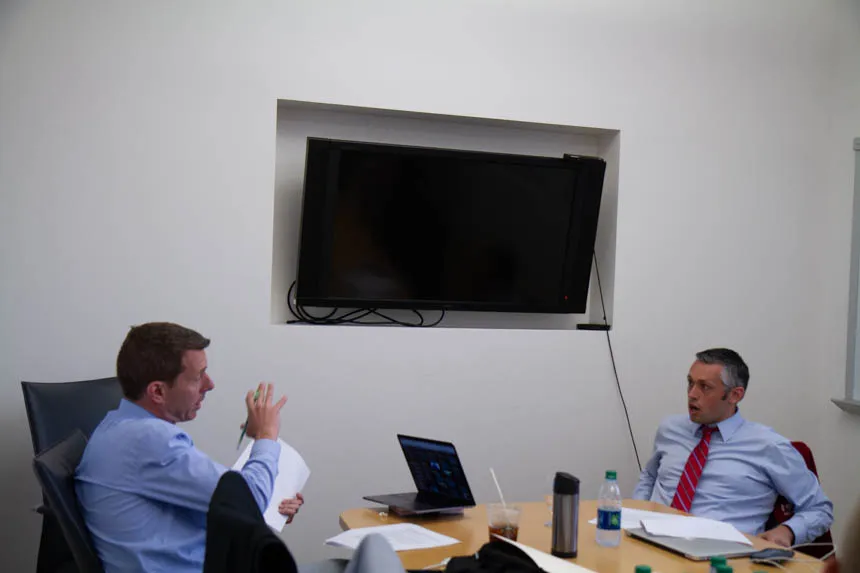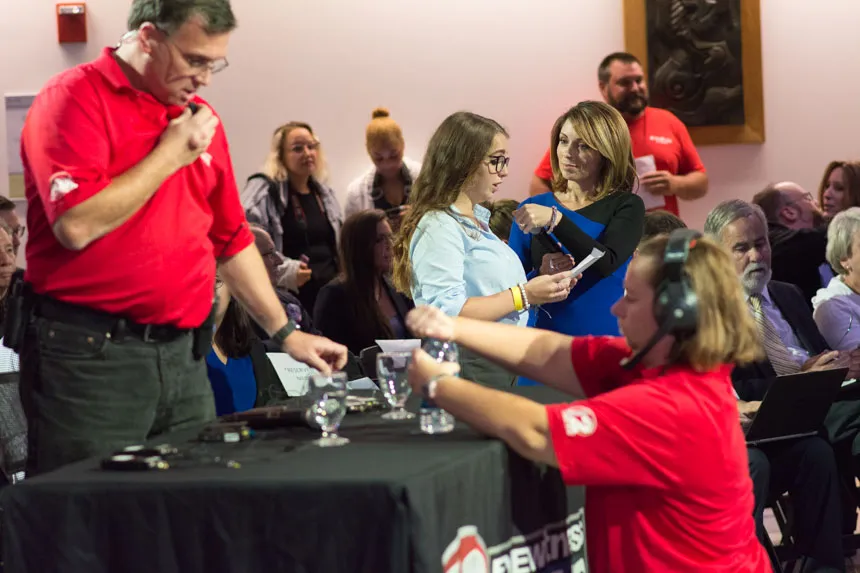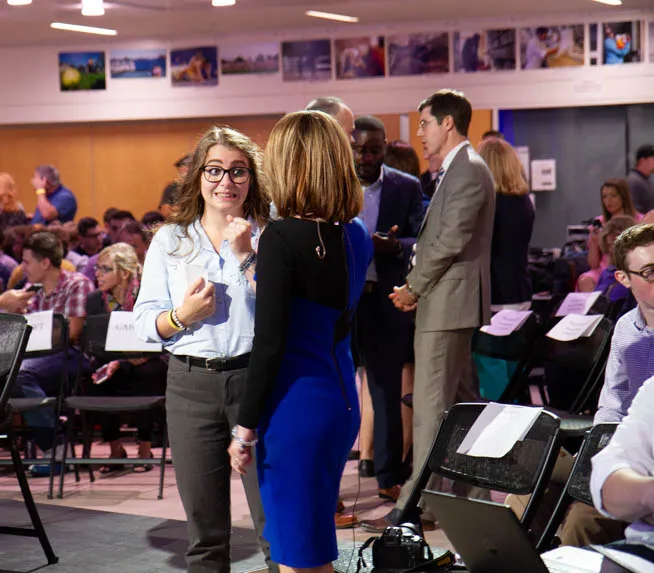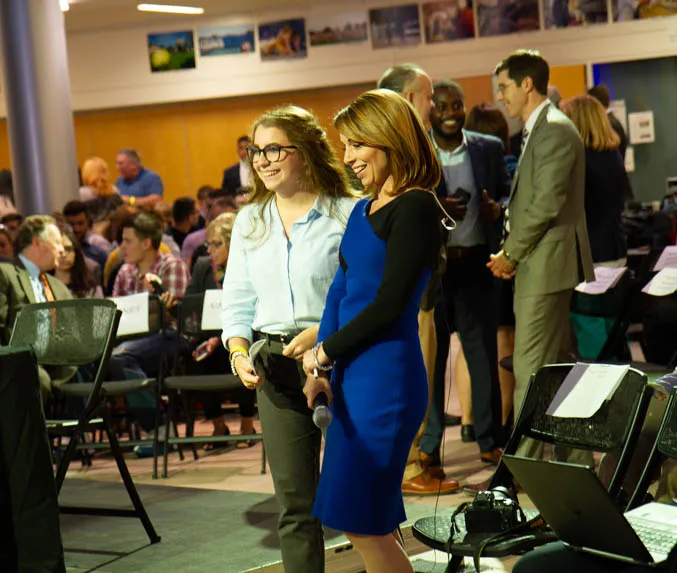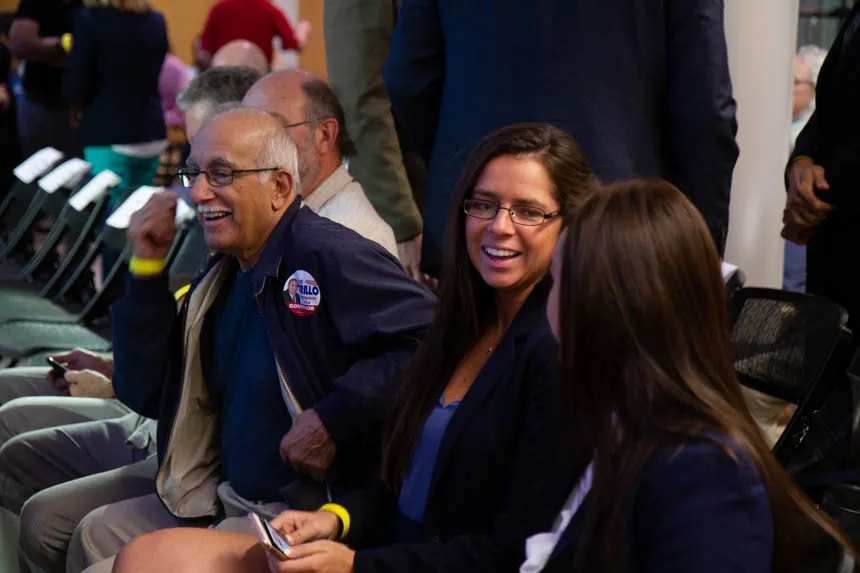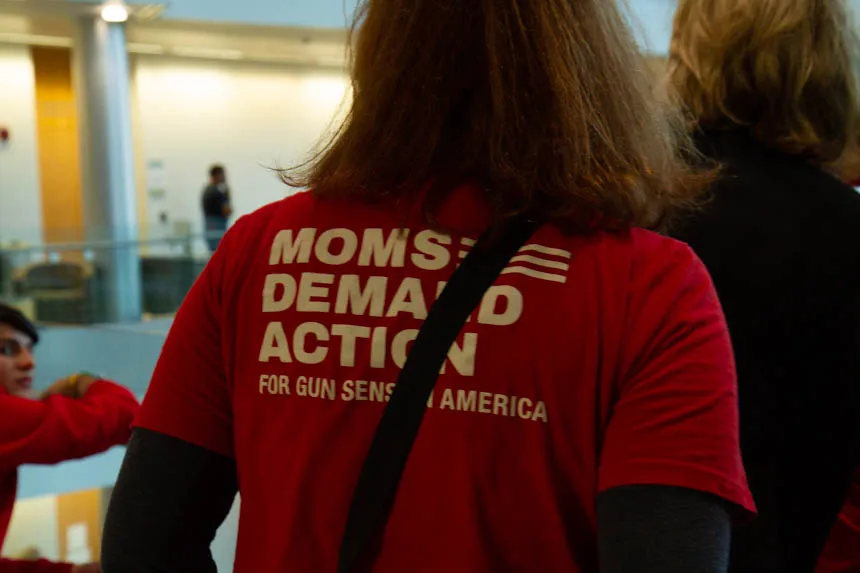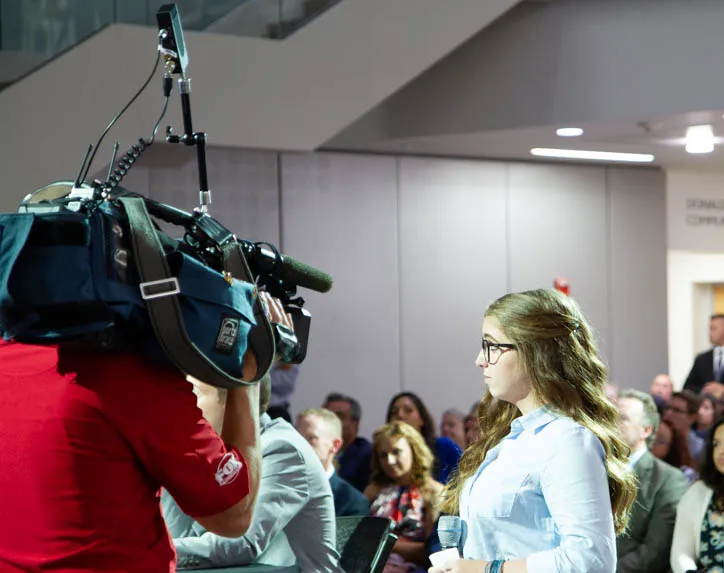Putting on the Debate: Behind the Scenes of a Live Broadcast and Real-Time Political Analysis
Hosting the Rhode Island gubernatorial debate offers students experiential learning opportunities, like professional journalism training and civic engagement
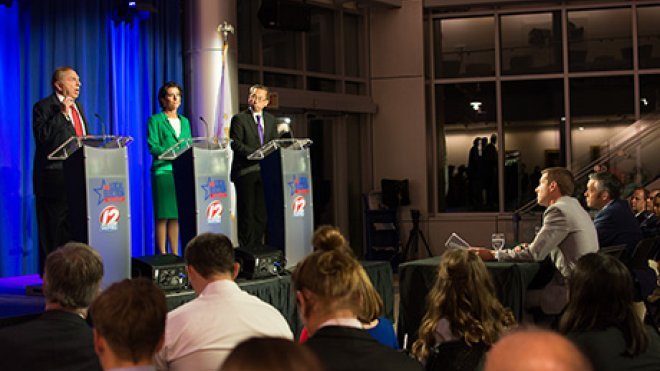
BRISTOL, R.I. – When the first gubernatorial debate in Rhode Island came to the Roger Williams University campus Thursday evening, RWU turned it into a real-world learning opportunity for our students about civic engagement and what goes on behind the scenes of putting on a live debate.
From pre-production to going live on-air, 10 journalism majors shadowed WPRI 12 news reporters, producers and camera crew to gain a firsthand look at live broadcast news production. Following the debate, six students participated in a WPRI 12 Facebook live discussion analyzing the performance of the three candidates – Democrat incumbent Gina Raimondo, Republican Allan Fung, and Independent Joseph Trillo – and examining issues from the perspective of young voters.
As the event played out inside RWU’s Global Heritage Hall, follow what the students experienced behind the scenes of the WPRI 12/RWU gubernatorial debate.
Pre-Production
5:03 p.m.
Seated at a small table inside a closed-off conference room in GHH, three senior journalism majors – Natalie Almeida, Rosalita Capoldo and Tyger Allen – follow WPRI 12 reporters Tim White and Ted Nesi’s rapid-fire “mock debate” as they prep as moderators for the live show in a few hours. With their suit jackets hanging nearby, a selection of ties draped atop, Nesi assumes the role of a candidate while White practices shooting off questions, anticipating vague answers, and correcting misrepresented facts by exhaustively knowing the details of political issues.
5:08 p.m.
Inside the atrium, Angeli Tillett, a junior political science and journalism double major, and Britney Dixon, a junior journalism major, speak with WPRI Assistant Chief Engineer and Director of IT Michael Hyde about the planning that goes into an event like this. Tillet and Dixon listen as he tells the pair about all the logistics they planned, from sound to lighting, and how they're now putting it into action at a breakneck pace. “We’ve been planning since July,” he says. “It’s been a lot of communication.”
5:09 p.m.
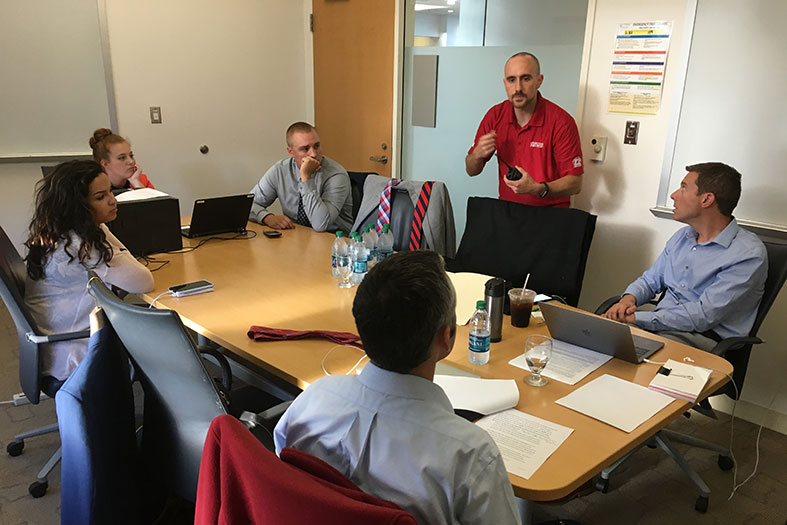
5:15 p.m.
Journalism major Kaylee Pugliese tries to relax before she poses a question to the three gubernatorial candidates, along with the night’s moderators, during the debate. “I’m a little nervous,” Pugliese says, laughing with Jordan Phelan as they sit in the back of the GHH multimedia room.
“You’re going to appreciate the moment afterwards,” encourages Phelan, a senior journalism and economics double major and unaffiliated voter who would be participating in a Facebook live discussion with Eyewitness News Anchor Danielle North and five other RWU students after the debate.
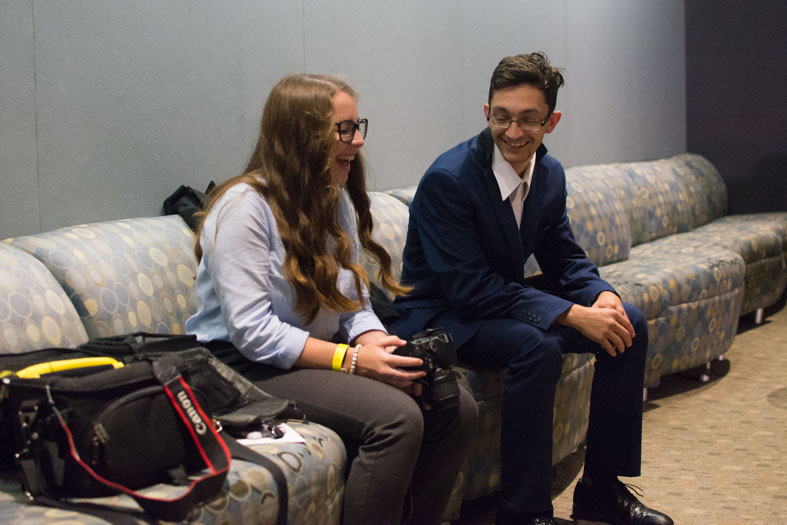
5:27 p.m.
White and Nesi evaluate their “balance of questions” for the candidates. Known for their debate-moderator style as “interrupters,” White says, they deliberate whether to keep pressing for an answer versus when to move on to the next. “I think anytime all three are being weaselly [meaning, vague, on an answer], you’re sad as a moderator, but you move on,” Nesi says.
5:20 p.m.
In the main control room, housed inside a broadcast van parked behind GHH, Devin Ciuci, a senior journalism major, and Benjamin Crawley, a junior political science major, observe the production team play with the audio and look of the feed.
5:35 p.m.
The moderators take their seats in front of the stage for a “dry run” of the debate, “so [the production crew] can set up camera shots and test the mics,” White informs the students.
As they watch from the side, Rosalita Capoldo notes, “I didn’t know they prepped beforehand like that. I learned that it’s important to know your stuff, to know the facts, before you ask the questions.”
Tyger Allen concurs: “Yeah, the idea of doing your homework. I think they know all three candidates front and back. It’s very impressive.”
5:38 p.m.
As showtime approaches, Noah Ashe, a junior journalism major, Britney Dixon and Angeli Tillett play the part of the three candidates at the podium, as the WPRI crew tune the audio. The students are seeing first-hand how a live event goes on without a hitch.
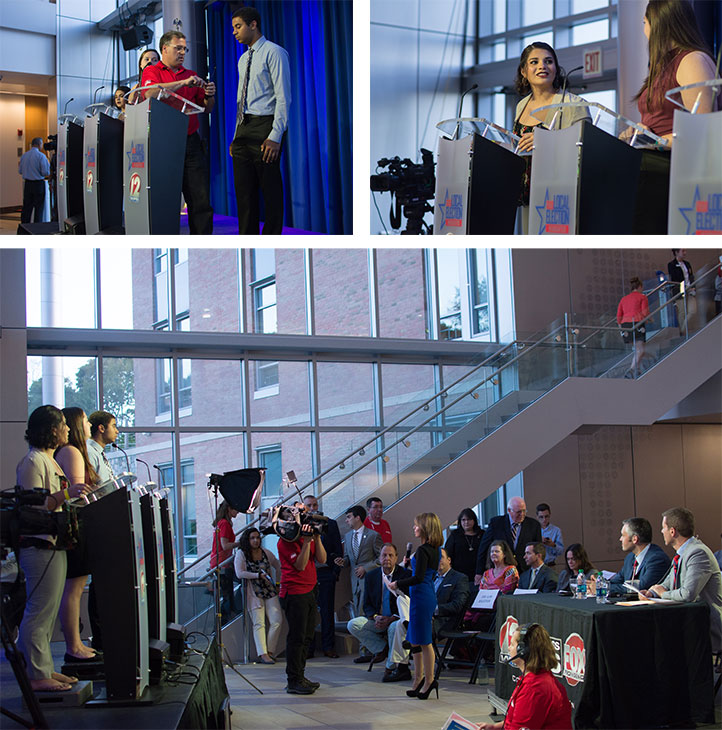
6:20 p.m.
Back in the “green room” with some time to spare before the live show, White opens a discussion with the students. “How do you pick your questions – what’s the process?” asks Natalie Almeida.
“Great question!” White says. He explains that he and Nesi choose topics from current political issues, as well as consult with local political organizations on what’s important to them. But he emphasizes that all questions are written by him and Nesi, fine-tuned with help from their editor.
6:22 p.m.
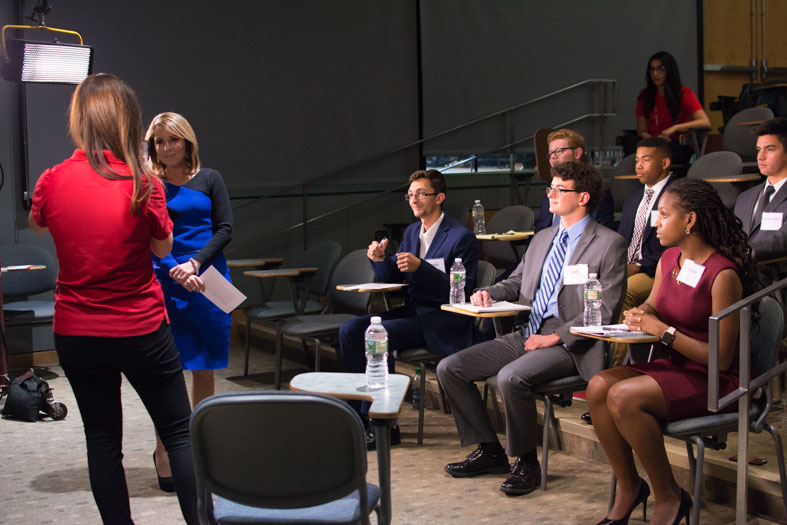
Inside the multimedia studio, the six students – David Hayes, Keith Jillette, Jordan Phelan, Kalasia Richer, Christopher Troccolo and Thomas Wallace – taking part in WPRI’s Facebook live discussion, listen as Danielle North walks them through what to expect. “We’re going to pretend that I’m actually doing this right now.” She turns on her anchor voice: “Who do you think won the debate? Jordan?”
6:38 p.m.
During the debate telecast, Ciuci and Crawley will remain inside the control room, watching the production crew and technical director stream a live broadcast. With just 20 minutes to go before the debate, the production team crew closes the van doors.
Debate Goes On-Air
7:03 p.m.
Inside GHH G01, the six political science students who would participate in the WPRI 12 Facebook live post-debate analysis react with a lively discussion and note-taking to White’s first question directed to Raimondo about how she handled the launch of the Unified Health Infrastructure (UHIP) program.
7:32 p.m.
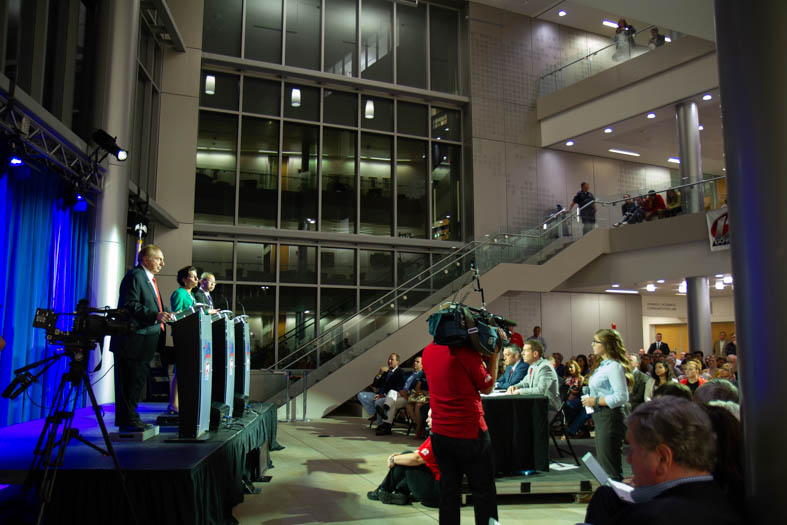
7:54 p.m.
A moment of silence hushes the multimedia room as the student-panelists listen intently to the candidates’ closing statements and take final notes for their discussion. A few minutes later, they get the signal that they’re preparing to go live in five seconds.
Behind the Scenes of the Debate
Facebook Live Discussion
8:06 p.m.
When Danielle North asks the student panel whether authenticity matters to young voters, David Hayes, a member of College Democrats at RWU, replies, “Authenticity is a big factor among young voters. You’re not the face of a party, you’re not the face of government – you have to be the most representative of you up there to connect with people so they’ll know how you’ll represent them.”
8:11 p.m.
Jordan Phelan, an unaffiliated voter, adds that he was surprised none of the candidates talked about R.I.’s opioid crisis. For Kalasia Richer, a member of College Republicans at RWU, an un-raised issue was the trend of college graduates moving out-of-state once they get an education here: “They’re soaking up the knowledge in the state, but then leaving and using their skills elsewhere. I would have liked to hear what the candidates have for a solution to that.”
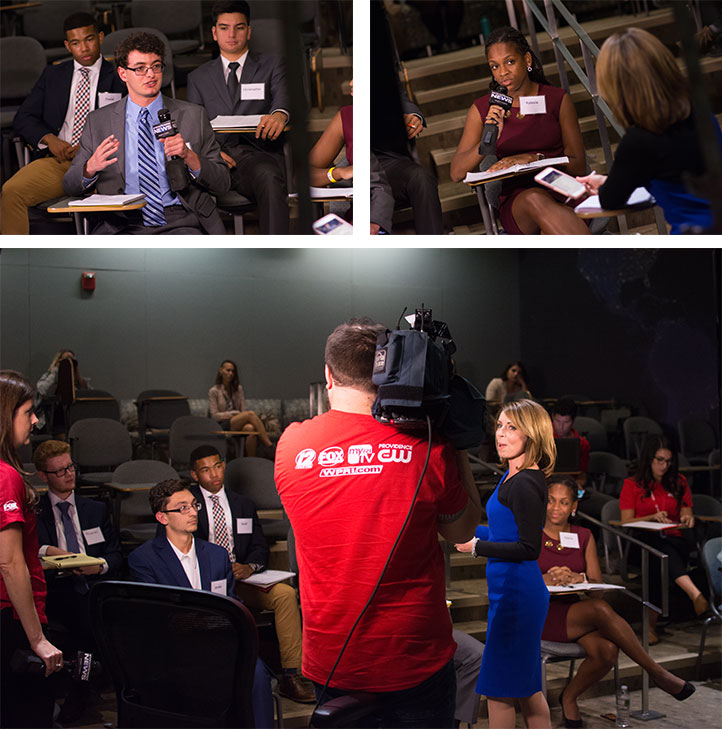
8:25 p.m.
North closes the discussion by asking what can be done to get young voters to the polls. “I’m going to spread the word to watch this debate,” says Keith Jillette, a member of the College Democrats at RWU. “I’m going to spread the word that young people have the responsibility, they have the power and the right to vote, and they should use it.”
